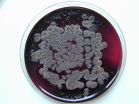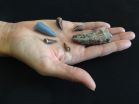(Press-News.org) You've probably seen advertising campaigns in which banks describe how much their customer relationships matter to them. While such messaging might have been cooked up at an ad agency, it turns out there is some truth underlying these slogans.
As a newly published study co-authored by an MIT professor shows, strong working relationships between bankers and clients reduce the likelihood of loan delinquencies and defaults, at least in the context of an emerging economy.
Using propriety data from a large bank in Chile, the study finds that when loan officers go on leave, their clients in good standing — often small businesses — increase their probability of becoming delinquent on loans by almost 22 percent. For already-delinquent clients, the probability of default on loans increases by 18 percent.
At the same time, there is a 5 percent reduction in the approval rate for loans among those clients. That means banks are both issuing fewer loans and suffering more defaults when relationships between individual bankers and clients are interrupted.
Intriguingly, the study indicates that this aggregate phenomenon is due to actions by both the bank and its customers. The banks in question are probably not retaining or using the "soft information," or informal knowledge, that absent bankers have collected about their clients. And the clients themselves seem more willing to take their business elsewhere, even if it means defaulting, when their bankers disappear.
"It is a two-way channel," says Antoinette Schoar, the Michael M. Koerner Professor of Entrepreneurship and a professor of finance at the MIT Sloan School of Management, and a co-author of the paper reporting the findings. She attributes the results to "a type of loyalty building up between the client and the loan officer" that "could not only affect how good the loan information is ... but also the willingness of the client to default."
The findings also indicate that we should not think of credit ratings as simple, immutable predictors of client types that are unaffected by the ways that banking relationships are conducted.
"This interplay between how the bank treats the customer and how the customer reacts to the bank therefore has an impact on the bank's repayment history," Schoar explains. "It actually has an impact on the observed credit quality of the customer."
She adds: "A financial system that is more effective in how it treats customers endogenously creates better creditors."
Why loan officers leave
The paper, "Do Relationships Matter? Evidence from Loan Officer Turnover," has been published in the journal Management Science. The authors are Schoar and Alejandro Drexler of the Federal Reserve Bank of Chicago.
To conduct the study, the scholars obtained detailed transaction data from BancoEstado, Chile's largest lender to small businesses; that data involved 187,000 borrowers from 2006 to 2008. The study took advantage of the fact that loan officers leave banks for different reasons, some of which can be anticipated by the bank more easily. For instance, when a loan officer takes leave due to a pregnancy, the bank is better able to anticipate and replace the interrupted professional relationship, compared with instances when the loan officer suddenly takes sick leave.
When the loan officer takes a maternity leave, the paper notes, that banker's clients "show no propensity to go to a bank outside of the current relationship." However, clients of officers who take sick leave are 2 percent more likely to get a loan from another bank, which is 13 percent higher than the probability that the average client in the study will do so. And clients of bankers on sick leave are about 20 percent less likely than the average client to get a new loan from the same bank.
"When the loan officer has time to prepare the client for the leave, all these negative effects are much mitigated," Schoar observes. "Ultimately it seems like this relationship and information is transferrable, given enough time."
About 53 percent of the loan officers in the study were women, and they each had an average of 339 active clients.
More testing, better policies
As Schoar acknowledges, the study's findings stem at least in part from the particular circumstances of its location and time, since detailed information about clients might be easier to obtain in other countries. On the other hand, the research fits with other types of studies across a variety of countries, including the U.S., pointing to the idea that person-to-person relationships influence outcomes in finance.
In Schoar's view, the policy applications of the findings are relatively clear: Banks can do business more effectively and efficiently by instituting better practices to smooth over interruptions in banker/client relationships. To be sure, that also means banks would probably have to invest a bit more in those new practices. But as Schoar notes, that is a question that can at least be subjected to direct cost-benefit studies, which ultimately could produce more beneficial relationships between bankers and customers.
"The financial industry has to do more testing of the optimal mix between the use of technology and human interaction," Schoar says.
INFORMATION:
Good working relationships between clients, bankers can reduce defaults
Study shows banks that have good working relationships with their customers reduce loan defaults
2014-09-29
ELSE PRESS RELEASES FROM THIS DATE:
Causes of California drought linked to climate change
2014-09-29
The atmospheric conditions associated with the unprecedented drought currently afflicting California are "very likely" linked to human-caused climate change, Stanford scientists say.
In a new study, a team led by Stanford climate scientist Noah Diffenbaugh used a novel combination of computer simulations and statistical techniques to show that a persistent region of high atmospheric pressure hovering over the Pacific Ocean that diverted storms away from California was much more likely to form in the presence of modern greenhouse gas concentrations.
The research, published ...
Decision to reintroduce aprotinin in cardiac surgery may put patients at risk
2014-09-29
Cardiac surgery patients may be at risk because of the decision by Health Canada and the European Medicines Agency to reintroduce the use of aprotinin after its withdrawal from the worldwide market in 2007, assert the authors of a previous major trial that found a substantially increased risk of death associated with the drug. In an analysis in CMAJ (Canadian Medical Association Journal), the authors refute three major criticisms of the trial made by the regulatory bodies.
Aprotinin, used to control bleeding in cardiac surgery, was withdrawn worldwide in 2007 after the ...
Revolutionary hamstring tester will keep more players on the field
2014-09-29
Elite sporting stars can assess and reduce their risk of a hamstring injury thanks to a breakthrough made by QUT researchers.
The discovery could be worth a fortune to football codes, with hamstring strain injuries accounting for most non-contact injuries in Australian rules football, football and rugby union, as well as track events like sprinting.
Using an innovative field device, a research team led by Dr Anthony Shield, from QUT's School - Exercise and Nutrition Sciences, and former QUT PhD student, Dr David Opar, now at the Australian Catholic University, measured ...
Drug for kidney injury after cardiac surgery does not reduce need for dialysis
2014-09-29
Among patients with acute kidney injury after cardiac surgery, infusion with the antihypertensive agent fenoldopam, compared with placebo, did not reduce the need for renal replacement therapy (dialysis) or risk of death at 30 days, but was associated with an increased rate of abnormally low blood pressure, according to a study published in JAMA. The study is being posted early online to coincide with its presentation at the European Society of Intensive Care Medicine annual congress.
More than 1 million patients undergo cardiac surgery every year in the United States ...
Climate detectives reveal handprint of human caused climate change in Australia
2014-09-29
Australia's hottest year on record in 2013 along with the accompanying droughts, heat waves and record-breaking seasons of that year was virtually impossible without the influence of human-caused global warming.
New research from ARC Centre of Excellence for Climate System Science (ARCCSS) researchers and colleagues, over five different Australian papers in a special edition of the Bulletin of the American Meteorological Society (BAMS), has highlighted the powerful influence of global warming on Australia's climate.
"We often talk about the fingerprint of human-caused ...
Rising prevalence of sleep apnea in US threatens public health
2014-09-29
DARIEN, IL – Public health and safety are threatened by the increasing prevalence of obstructive sleep apnea, which now afflicts at least 25 million adults in the U.S., according to the National Healthy Sleep Awareness Project. Several new studies highlight the destructive nature of obstructive sleep apnea, a chronic disease that increases the risk of high blood pressure, heart disease, Type 2 diabetes, stroke and depression.
"Obstructive sleep apnea is destroying the health of millions of Americans, and the problem has only gotten worse over the last two decades," said ...
Targeted combination therapy halts disease, extends life in advanced melanoma patients
2014-09-29
A world-first study in today's New England Journal of Medicine heralds the efficacy of a targeted combination drug therapy after reporting major declines in the risk of disease progression and death in people with metastatic melanoma.
The multi-centre, double-blind, randomised, phase 3 trial compared oral dabrafenib (150 mg twice daily) and oral trametinib (2 mg once daily) combination therapy with oral dabrafenib (150 mg twice daily) and placebo.
All trial patients had inoperable stage 3C or 4 metastatic melanoma that had a BRAF gene mutation V600E or V600K. Among ...
Investigating the 'underground' habitat of Listeria bacteria
2014-09-29
The literature describes Listeria as ubiquitous bacteria with widespread occurrence. Yet they only become a problem for humans and animals when they contaminate food processing facilities, multiply, and enter the food chain in high concentrations. An infection with Listeria monocytogenes can even be fatal for humans or animals with weakened immune systems.
Listeria in soil or water are not dangerous
"Listeria in soil or water represent a relatively low risk to humans," explains study director Beatrix Stessl. "The concentrations are too low. The aim of our study was ...
Trial shows trastuzumab should remain as standard of care for HER2-positive breast cancer
2014-09-29
JACKSONVILLE, Fla., Sept. 29, 2014 — Analysis of more than 8,000 women who participated in the world's largest study of two treatments for HER2-positive breast cancer reinforces other findings from the clinical trial showing that trastuzumab (Herceptin) should remain the standard of care for this cancer, says a Mayo Clinic researcher.
This study, being presented at the European Society for Medical Oncology (ESMO) 2014 Congress in Madrid, reveals that when used as a single HER2-targeted therapy in addition to standard chemotherapy, trastuzumab offers a better outcome than ...
Tooth serves as evidence of 220 million-year-old attack
2014-09-29
At the beginning of the age of dinosaurs, gigantic reptiles—distant relatives of modern crocodiles—ruled the earth. Some lived on land and others in water and it was thought they didn't much interact. But a tooth found by a University of Tennessee, Knoxville, researcher in the thigh of one of these ancient animals is challenging this belief.
Stephanie Drumheller, an earth and planetary sciences lecturer, and her Virginia Tech colleagues Michelle Stocker and Sterling Nesbitt examined 220-million-year-old bite marks in the thigh bones of an old reptile and found evidence ...
LAST 30 PRESS RELEASES:
The wild can be ‘death trap’ for rescued animals
New research: Nighttime road traffic noise stresses the heart and blood vessels
Meningococcal B vaccination does not reduce gonorrhoea, trial results show
AAO-HNSF awarded grant to advance age-friendly care in otolaryngology through national initiative
Eight years running: Newsweek names Mayo Clinic ‘World’s Best Hospital’
Coffee waste turned into clean air solution: researchers develop sustainable catalyst to remove toxic hydrogen sulfide
Scientists uncover how engineered biochar and microbes work together to boost plant-based cleanup of cadmium-polluted soils
Engineered biochar could unlock more effective and scalable solutions for soil and water pollution
Differing immune responses in infants may explain increased severity of RSV over SARS-CoV-2
The invisible hand of climate change: How extreme heat dictates who is born
Surprising culprit leads to chronic rejection of transplanted lungs, hearts
Study explains how ketogenic diets prevent seizures
New approach to qualifying nuclear reactor components rolling out this year
U.S. medical care is improving, but cost and health differ depending on disease
AI challenges lithography and provides solutions
Can AI make society less selfish?
UC Irvine researchers expose critical security vulnerability in autonomous drones
Changes in smoking status and their associations with risk of Parkinson’s, death
In football players with repeated head impacts, inflammation related to brain changes
Being an early bird, getting more physical activity linked to lower risk of ALS
The Lancet: Single daily pill shows promise as replacement for complex, multi-tablet HIV treatment regimens
Single daily pill shows promise as replacement for complex, multi-tablet HIV treatment regimens
Black Americans face increasingly higher risk of gun homicide death than White Americans
Flagging claims about cancer treatment on social media as potentially false might help reduce spreading of misinformation, per online experiment with 1,051 US adults
Yawns in healthy fetuses might indicate mild distress
Conservation agriculture, including no-dig, crop-rotation and mulching methods, reduces water runoff and soil loss and boosts crop yield by as much as 122%, in Ethiopian trial
Tropical flowers are blooming weeks later than they used to through climate change
Risk of whale entanglement in fishing gear tied to size of cool-water habitat
Climate change could fragment habitat for monarch butterflies, disrupting mass migration
Neurosurgeons are really good at removing brain tumors, and they’re about to get even better
[Press-News.org] Good working relationships between clients, bankers can reduce defaultsStudy shows banks that have good working relationships with their customers reduce loan defaults




